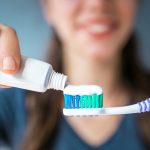Toothpaste ingredient breeds “superbugs,” causes adverse health effects
 (NaturalHealth365) When you think of your dental hygiene routine in the morning and evening, your mind probably doesn’t think about superbugs. However, the sad truth is your toothpaste likely contains harmful ingredients that may harm your health by creating superbugs that ultimately put your mouth and your overarching health at risk.
(NaturalHealth365) When you think of your dental hygiene routine in the morning and evening, your mind probably doesn’t think about superbugs. However, the sad truth is your toothpaste likely contains harmful ingredients that may harm your health by creating superbugs that ultimately put your mouth and your overarching health at risk.
Though few are aware of it, ingredients within toothpaste and even some types of mouth rinse have the potential to generate harmful germs that are resistant to antibiotics.
Common toothpaste ingredient breeds antibiotic-resistant bacteria strains
According to researchers, the levels of triclosan in toothpaste and other household products are increasing, making it that much more difficult to combat bacteria. Triclosan is used in many brands of toothpaste, yet it has been banned from other personal hygiene and home products such as body washes. The issue with triclosan is that it has the potential to make even a brief stay in a hospital a fatal one.
Antibacterial compounds within products people use daily ultimately set the stage for creating germs that prove resistant to antibiotics and jeopardize human health. The worst-case scenario is that triclosan and other compounds lead to the rise of germs that currently available antibiotics will not be able to ward off. Undoubtedly, germs that render antibiotics ineffective represent enormous danger and put people’s lives at risk.
Furthermore, research shows that triclosan in toothpaste and mouthwash might also decrease the efficacy of certain antibiotic drugs, potentially even spurring inflammation in the gut. The pressing question is whether consumer product manufacturing companies should continue to be allowed to use triclosan and other antimicrobial chemicals in toothpaste and other products.
The above-referenced study reveals that some microbial enzymes in the gut can spur triclosan toxicity, potentially leading to colon damage and the symptoms of colitis, a type of inflammatory bowel disease (IBD). In addition, other studies have shown that triclosan exposure can overwhelm the immune system.
Are health authorities paying attention to the growing dangers of antibiotic resistance?
The researchers noted triclosan generated resistance to a plethora of antibiotics. However, one of the antibiotics was particularly notable. Cipro, also known as ciprofloxacin, an antibiotic regularly used for the treatment of urinary tract infections, was the most recognizable antibiotic with resistance after triclosan was introduced. This resistance is meaningful as Cipro is becoming more popular as urinary tract infections occur fairly frequently.
There’s no doubt, antibiotic resistance is a serious health problem. Unfortunately, the mainstream media has ignored this crisis, focusing on more “acceptable” public health issues like, COVID-19. The shift away from so-called antibacterial products and a reduced dependency on prescription antibiotics would greatly help in the ongoing quest to overcome antibiotic-resistant bacteria.
Protect yourself from being harmed … click here to learn more about natural antibiotics that are quite effective.
Sources for this article include:



